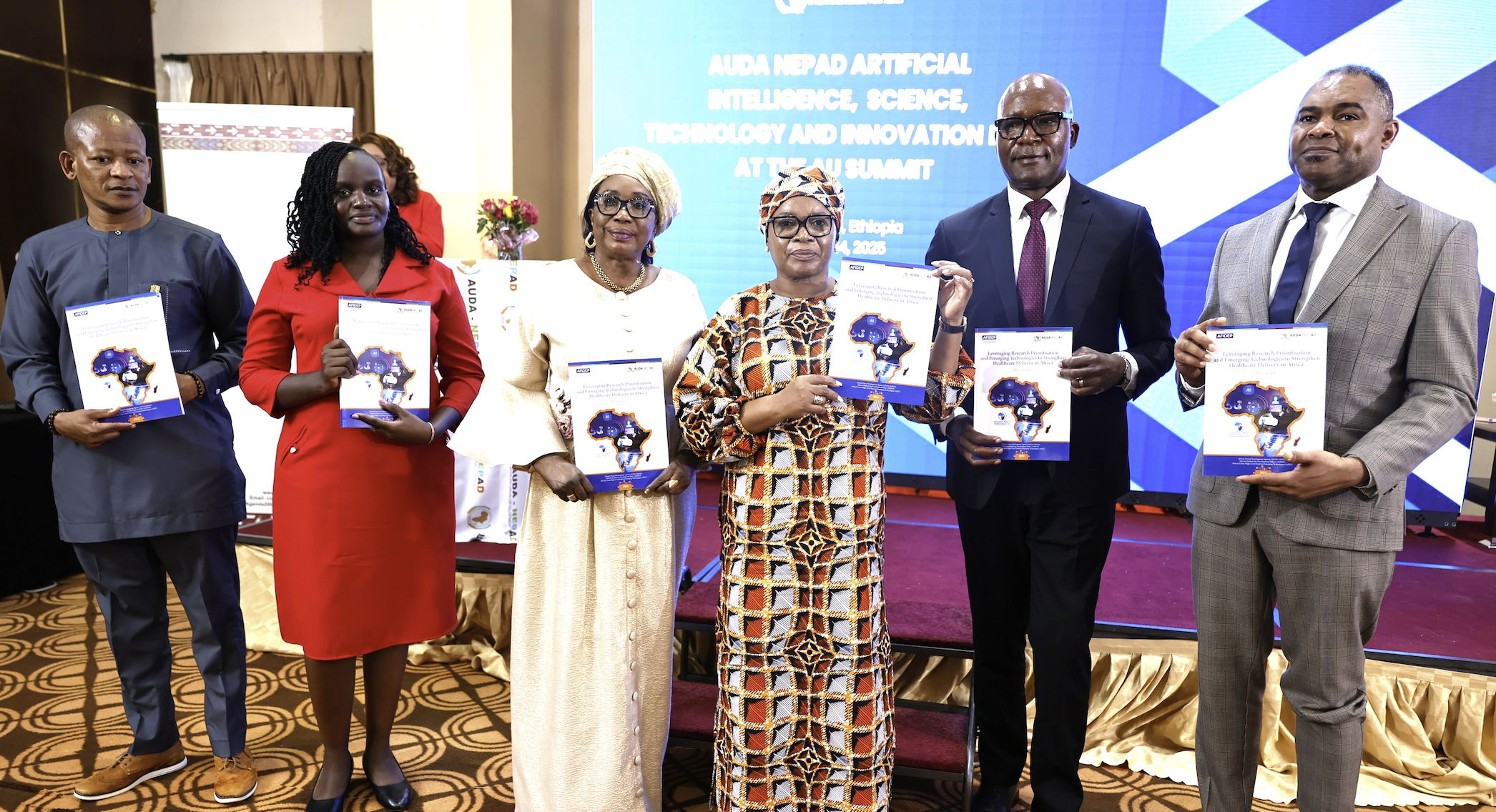News

The African Institute for Development Policy (AFIDEP) and the African Union Development Agency (AUDA-NEPAD) have called on African governments to harness research and emerging technologies to enhance healthcare outcomes across the continent. In a monograph titled Leveraging Research Prioritisation and Emerging Technologies to Strengthen Healthcare Delivery in Africa, launched on 14 February 2025, on the sidelines of the 38th AU Summit of Heads of State and Government in Addis Ababa, the organisations emphasise the critical need for African governments to invest in innovative solutions and research to improve healthcare delivery, boost patient outcomes, and accelerate progress toward achieving universal health coverage (UHC).
The monograph presents a comprehensive analysis of Africa’s healthcare landscape, identifying key trends, challenges, and transformative solutions. It highlights the importance of prioritising health research in areas such as genomic medicine, biospecimen and biobanking, One Health, and maternal, neonatal and child health. Additionally, it explores the potential of emerging technologies, including artificial intelligence (AI), drones, blockchain, and Internet of Medical Things (IoMT), in addressing critical healthcare challenges.
Delivering keynote remarks on behalf of H.E. President Lazarus Chakwera, President of Malawi, at the launch of the monograph, Malawi Minister of Foreign Affairs, Honorable Nancy Tembo, MP, noted that “emerging technologies offer creative solutions to persisting pressing challenges in Africa, including in health, agriculture, and education sectors.”
Recognising the challenges hindering the adoption of emerging technologies in Africa’s healthcare sector, the minister called on governments and the private sector to “develop robust policies and regulations, invest in emerging technologies, prioritise infrastructural development i.e. electricity and internet supply, and consider training of professionals,” for the continent to harness full potential of emerging technologies.
H.E. Nardos Bekele-Thomas, CEO of AUDA-NEPAD, also urged stakeholders to support the adoption of technology, especially among young people. “Imagine what would happen if we allowed access to technology and provide training to the young people?” she remarked. “The future is in innovation and technology,” she emphasised.
Despite many efforts to improve healthcare delivery in Africa, countries still struggle with infrastructure gaps, limited healthcare workforce, and systemic inefficiencies. The report advocates for research-driven policies and strategic investments in technology to bridge these gaps and ensure sustainable health improvements.
“The knowledge product is putting evidence at the centre of how we can make science, technology and innovation the bedrock of Africa’s Agenda 2063”, said Dr Eliya Zulu, Executive Director of AFIDEP. In light of external donor withdrawal, Dr Zulu emphasised that “the time to act is now,” calling on Africans to leverage evidence in mobilising and utilising resources across the continent to achieve self-reliance.
The report, which brings insights from emerging health technologies experts, academia, government officials, and civil society organisations across Africa, provides stakeholders with evidence-based recommendations to foster innovation, strengthen regulatory frameworks, and enhance cross-sectoral collaborations. It calls for increased domestic health financing, investments in research infrastructure, and capacity building to accelerate the adoption of emerging technologies.
AFIDEP and AUDA-NEPAD urge African governments, private sector actors, civil society practitioners, and development partners to work together to create an enabling environment for health research and innovation. By harnessing the power of science and technology, Africa can build a resilient healthcare ecosystem capable of addressing current and future health challenges.
Read the monograph here:

